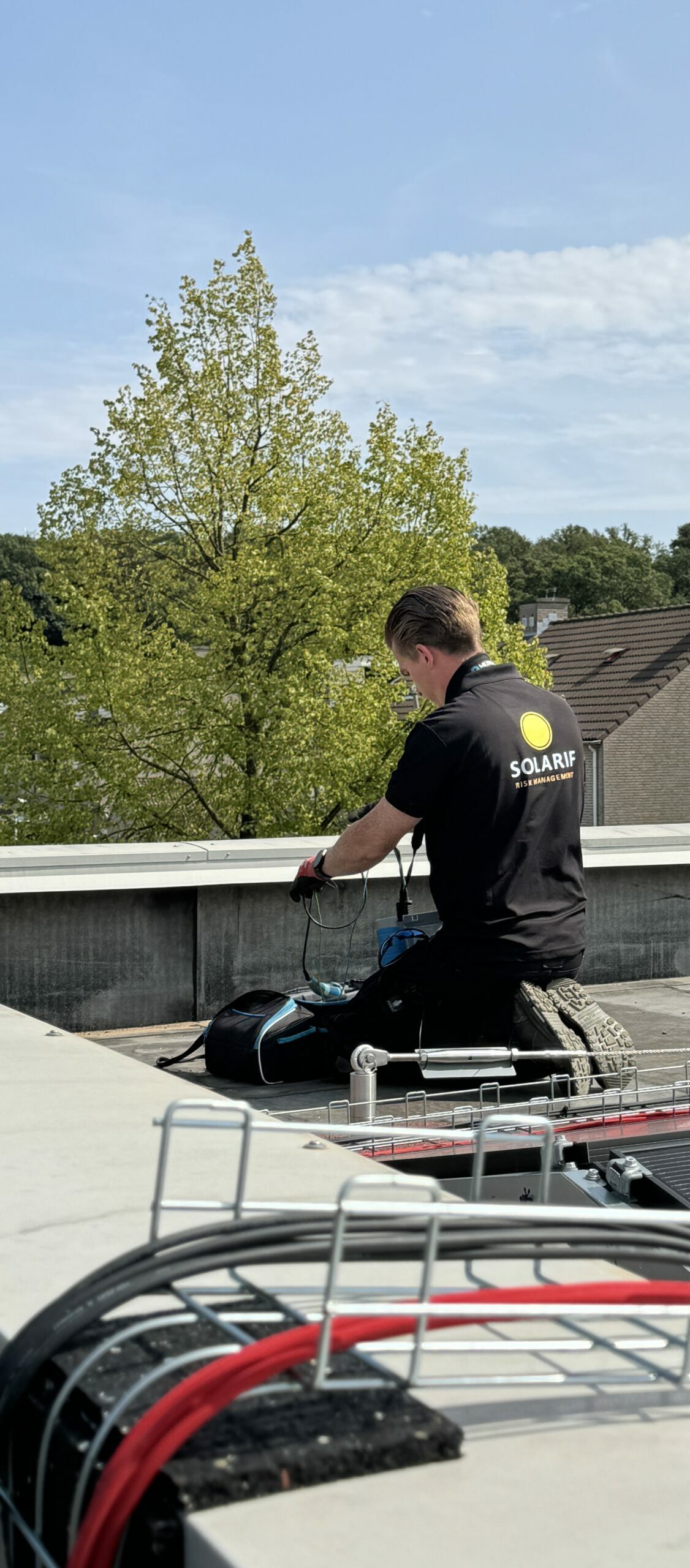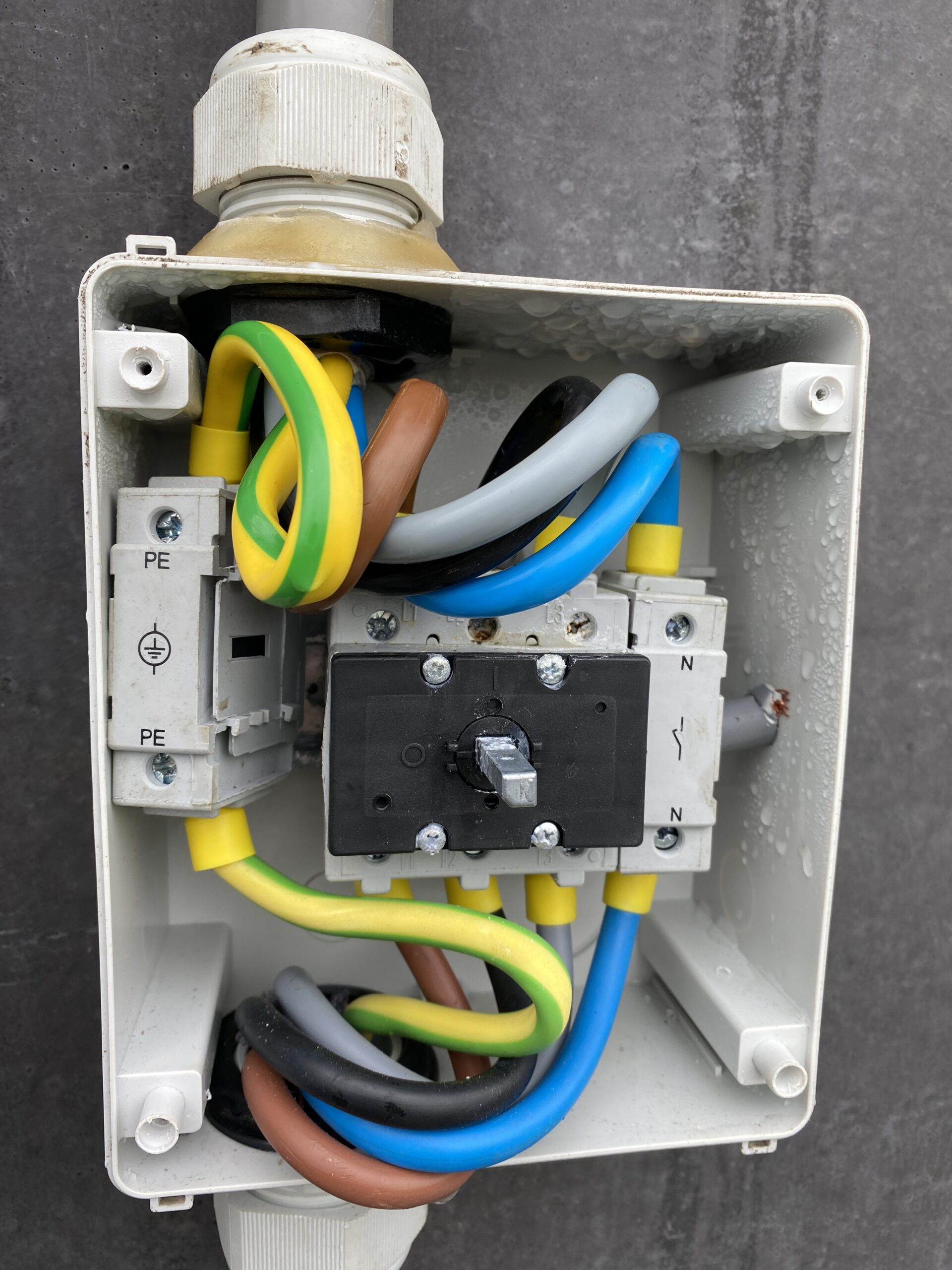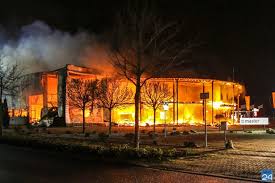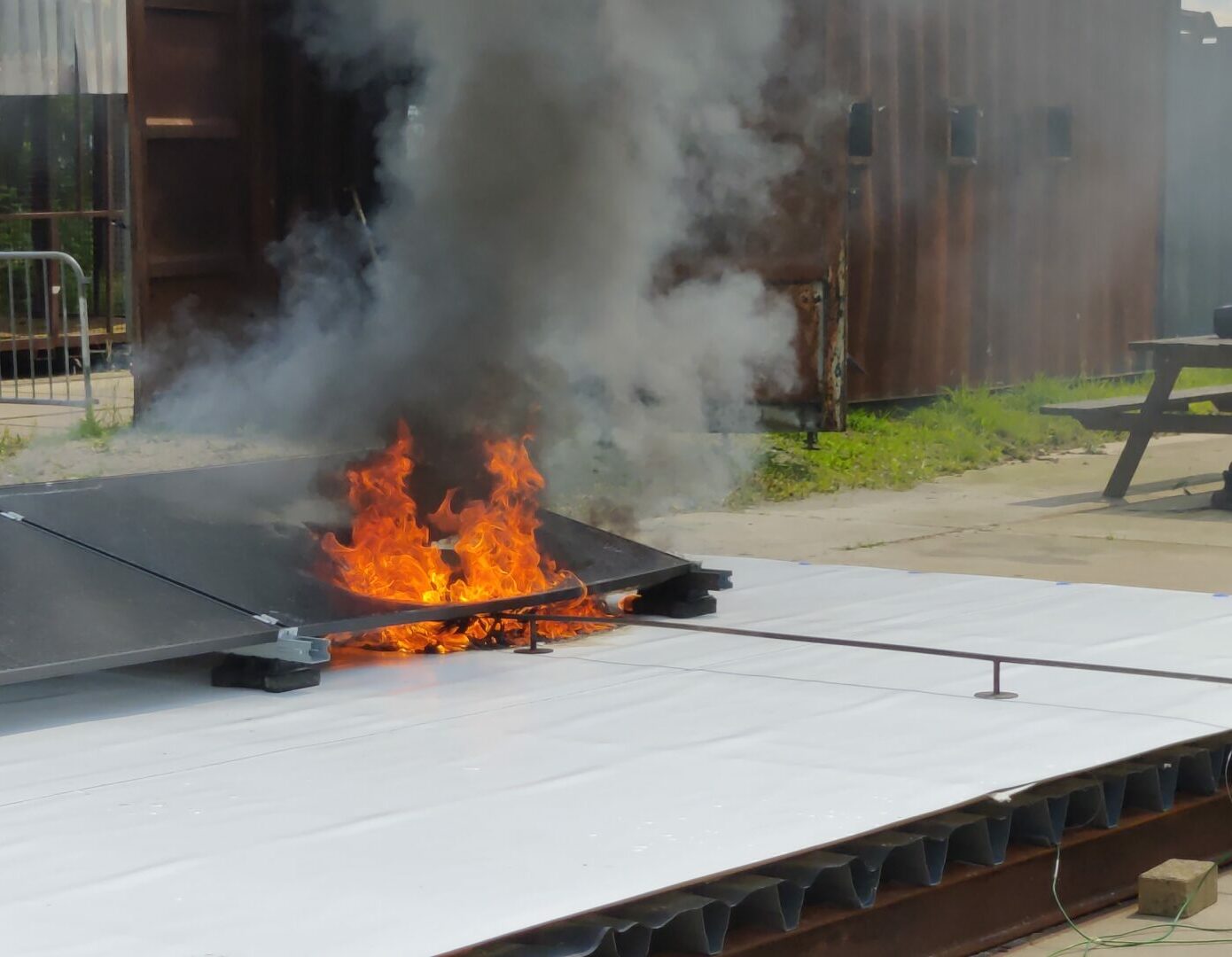What are the key differences between Scope 8, Scope 10, and Scope 12 inspections?
SCIOS Scope 8, Scope 10, and Scope 12 inspections are specialized assessment protocols used in the commercial solar energy sector to verify different aspects of installation quality, safety, and compliance. Each inspection type serves a distinct purpose in the solar project lifecycle.
- Scope 8: Focuses on the occupational safety of electrical installations, ensuring compliance with NEN 3140 standards.
- Scope 10: Assesses the fire risk of electrical installations and connected equipment, based on NTA 8220 standards.
- Scope 12: Provides comprehensive certification specifically for commercial solar installations, verifying electrical safety, installation quality, and compliance with industry standards including NEN 1010, NEN 3140, NEN-EN-IEC 62446-1, NEN-EN-IEC 61439, and SCIOS Technical Document 18.
Understanding these different inspection types is crucial for project developers, EPC companies, and asset owners to ensure their installations meet safety standards and insurance requirements.

What are Scope 8, Scope 10, and Scope 12 inspections for solar installations?
Scope 8, Scope 10, and Scope 12 inspections are distinct assessment protocols used to evaluate different aspects of commercial solar PV installations. Each serves a unique purpose in ensuring system safety, performance, and compliance with industry standards.
- A Scope 8 inspection is a safety assessment of fixed electrical installations, focusing on occupational safety. It is based on NEN 3140 standards and is intended to determine whether an installation is safe for use. This inspection is often required for compliance with the Dutch Working Conditions Act.
- A Scope 10 inspection evaluates the fire risk of electrical installations and connected equipment. It is based on NTA 8220 standards and aims to identify potential fire hazards to prevent damage and ensure safety. This inspection is often required by insurers for property insurance purposes.
- A Scope 12 inspection is a comprehensive assessment of solar PV installations, focusing on electrical safety, installation quality, and compliance with industry standards. It includes an initial special inspection (EBI) and periodic inspections (PI), ensuring that the installation meets all necessary safety and quality standards.

What is the primary purpose of a Scope 8 inspection?
The primary purpose of a Scope 8 inspection is to assess the occupational safety of electrical installations, ensuring they comply with NEN 3140 standards. This inspection is essential for verifying that installations are safe for use and meet legal requirements.

How does a Scope 10 inspection differ from other inspection types?
A Scope 10 inspection differs from other inspection types primarily in its focus on assessing the fire risk of electrical installations and connected equipment. While Scope 8 focuses on occupational safety and Scope 12 focuses on comprehensive solar installation safety, Scope 10 specifically addresses fire hazards. This inspection is often required by insurers to meet property insurance requirements.

Why is a Scope 12 inspection required for solar panel insurance?
A Scope 12 inspection is required for solar panel insurance because it provides insurers with verification that the commercial solar installation meets all necessary safety and quality standards. This inspection specifically addresses the unique fire and electrical safety risks associated with solar PV systems, ensuring compliance with relevant standards and reducing risk for both the system owner and the insurer.
What documentation is provided after each type of inspection?
Each inspection type results in different documentation that serves specific purposes in verifying system quality, safety, and compliance. Understanding these differences is important for project developers and asset owners.
- Scope 8 Inspection: Provides a report documenting the occupational safety assessment of the electrical installation, including compliance with NEN 3140 standards.
- Scope 10 Inspection: Provides a report detailing the fire risk assessment of the electrical installation and connected equipment, including compliance with NTA 8220 standards.
- Scope 12 Inspection: Provides a comprehensive certification report verifying compliance with all relevant standards for solar PV installations, including NEN 1010, NEN 3140, NEN-EN-IEC 62446-1, NEN-EN-IEC 61439, and SCIOS Technical Document 18.
Who is qualified to perform Scope 8, 10, and 12 inspections?
The qualification requirements for inspectors vary significantly between the different inspection types, with Scope 12 having the most stringent requirements due to its comprehensive nature and importance for insurance purposes.
- Scope 8 Inspections: Qualified electrical technicians with experience in electrical installations can typically perform these basic assessments. While specific certification might not be required, the inspector should have sufficient knowledge electrical systems to identify obvious installation defects and safety concerns.
- Scope 10 Inspections: Require qualified electrical inspectors with formal training in electrical safety standards and inspection protocols. These professionals need a solid understanding of general electrical systems.
- Scope 12 Inspections: Can only be performed by certified SCIOS Scope 12 inspectors with specific qualifications and accreditation. These inspectors must work for SCIOS-certified inspection companies and have completed specialized training in solar PV system inspection according to the relevant standards.

What are the key takeaways about solar panel inspection types?
The key differences between Scope 8, 10, and 12 inspections lie in their comprehensiveness, purpose, and recognition by insurers for commercial solar installations. Understanding these distinctions is essential for project planning and risk management.
- Scope 8: Provides a basic safety assessment focusing on occupational safety and compliance with NEN 3140 standards.
- Scope 10: Offers a fire risk assessment focusing on electrical installations and connected equipment, based on NTA 8220 standards.
- Scope 12: Stands as the essential certification for commercial solar installations seeking insurance coverage, verifying compliance with all relevant standards and ensuring safety and quality.
When planning commercial solar projects, it’s crucial to factor in the current extended lead times for Scope 12 inspections, which can be up to 6 months due to the shortage of qualified inspectors. Early scheduling and careful project planning can help mitigate potential delays in obtaining the necessary certification for insurance purposes.
It’s worth noting that Scope 12 inspections contribute to both fire safety and quality standards, making them an essential component of responsible solar asset management in the Dutch market.
Secure your solar investment today!
Our certified SCIOS Scope 12 experts can inspect your system, ensuring compliance, safety, and insurability. Contact us now for a quote!
📧 Email: support@solarif.com
☎️ Phone: +31 (0)26 711 5050




